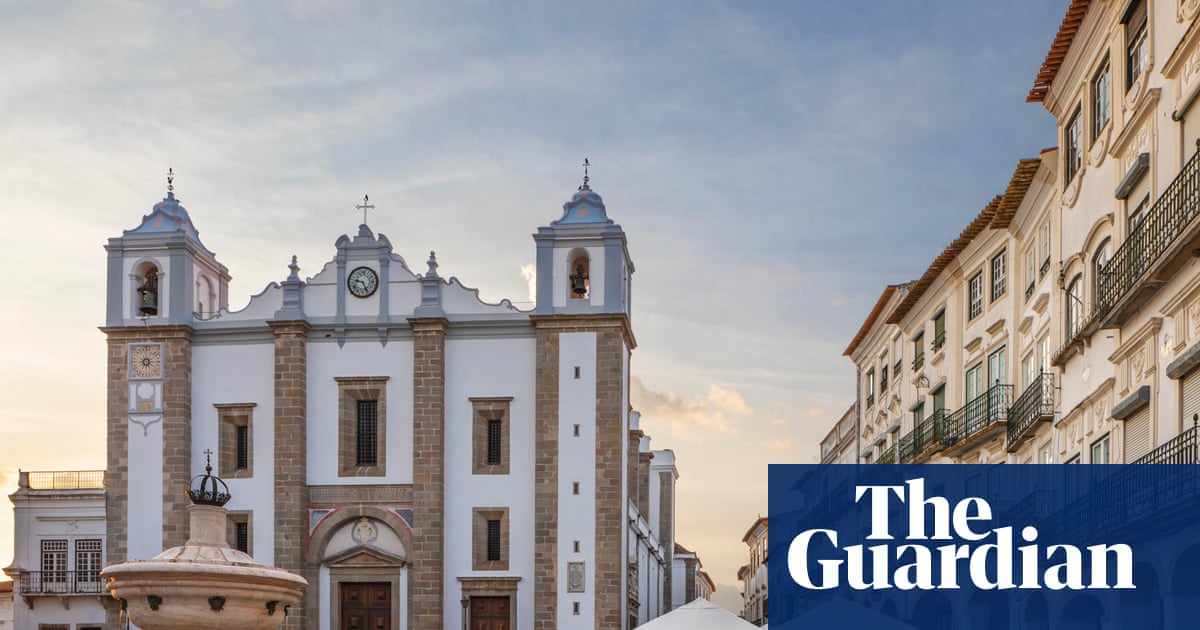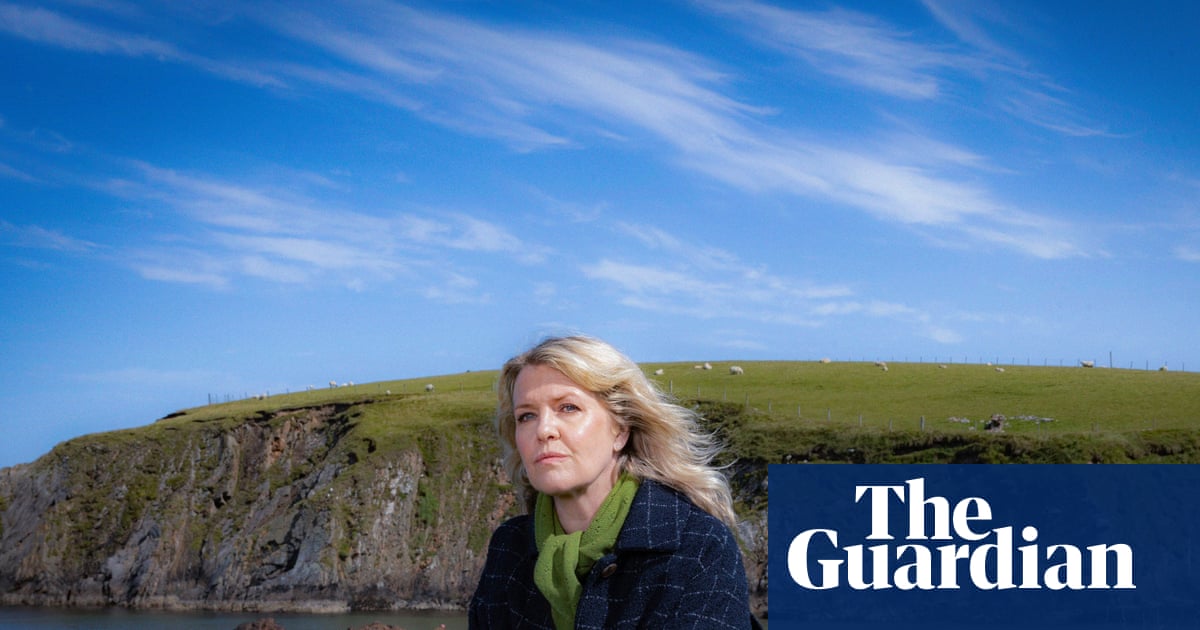Environmental campaigners have welcomed a decision to halt construction of a disputed five-star hotel on a Greek beach known for its outstanding natural beauty.
Local authorities on the Cycladic island of Milos said a building licence for the resort on the world-renowned “moon beach” had been revoked by the municipality’s planning department after falling short of inspection standards.
“It was found that not all required approvals and supporting documentation had been submitted,” the island’s municipal council said in a statement Wednesday. “No construction will proceed without full compliance with laws and environmental requirements.”
Milos’ mayor, Manolis Mikelis, had faced growing public outcry over the planned development after excavators were first spotted on the site earlier this year.
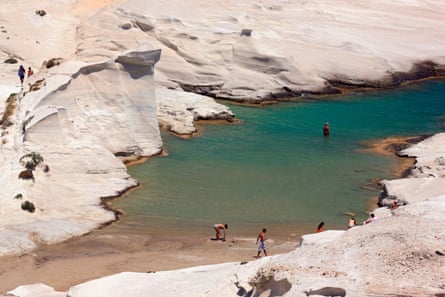
Famous for its lunar-like volcanic landscape, hewn over millions of years, Milos’s “moon beach” is among the most photographed shorelines in Greece, with travel experts describing it as among the most beautiful on the planet.
Architectural plans envisioned the hotel complex cascading across a vast area of the pumice-white rocks, with swimming pools and cave villas constructed within view of breathtakingly turquoise Aegean seas below.
But for many the Milos project had become synonymous with the threat posed by runaway construction on Greek islands.
“The decision is undeniably good news but in reality it is only a small step in the right direction,” says Dimitris Vayanos, an academic who heads Save Ios, a citizens’ association set up to protect the Cycladic isle’s character and natural environment. “There is huge pressure from various stakeholders to build these islands to death. Right now, there are about 50 hotels being constructed in Milos.”
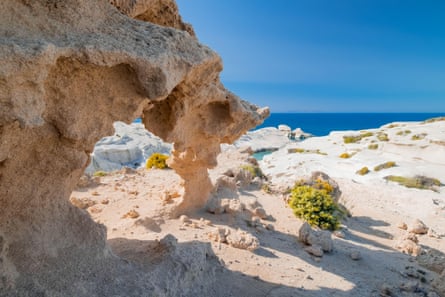
At no other time has Greece attracted so many tourists. Last year it lured 36.1 million visitors, almost four times its resident population, fuelling a building spree that is widely feared to be threatening the fragile ecosystem of island chains such as the Cyclades.
Underpinning the development are Greek and foreign investors, who, aided by a thriving construction industry, have snapped up large tracts of land in popular destinations – a trend that began when the debt-stricken country was plunged into prolonged economic crisis 15 years ago.
“The Cyclades are especially vulnerable because they are so small,” said Vayanos, a professor of finance at the London School of Economics. “This whole business started at the beginning of the crisis in 2010 when shepherds and farmers began selling off plots to investors, who in turn began acquiring one plot after another which made [enforcement of] zoning restrictions that much more difficult.”
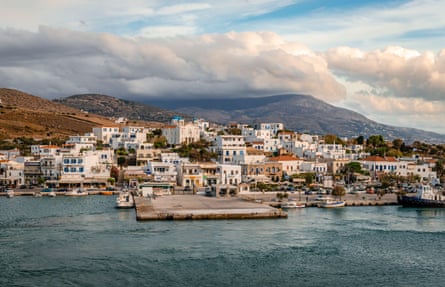
Greece’s ministry of environment must become “much more serious” about protecting the islands’ cultural and natural heritage, he said: “There is no excuse. We are out of the crisis now.”
Runaway construction, not least of swimming pools, has placed unprecedented pressure on natural resources, with water scarcity this summer topping the list of ecological hazards on Greek islands.
In a country on the frontline of climate breakdown, where global heating is projected to rise at unprecedented rates, environmental experts have spoken increasingly of the need for more sustainable tourism.
Describing the Milos decision as “the tip of the iceberg”, Demetres Karavellas, the general director of WWF Greece, told the Guardian “the very identity” of the nation’s island archipelagoes was at risk of being lost if overdevelopment and other byproducts of unrestricted tourism were not brought under control.
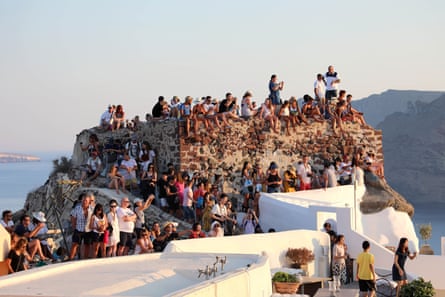
“The Milos decision may be a good one … but what happens to the dozens of other similar cases throughout the islands that are not publicly exposed and scrutinised?” he said. “On many Greek islands, an unchecked construction frenzy is erasing the landscape before our eyes. Without proper proactive planning and clear rules, the damage to nature and the very identity of these unique islands is becoming irreversible.”
With the backlash growing and more citizens forming grassroots groups to apply pressure to local authorities, landmark victories such as this week’s in Milos are garnering attention.
But while judicial authorities have stepped up scrutiny of new projects – with the council of state, the country’s supreme court of administrative law, often weighing in to reverse contentious decisions – campaigners say it is near impossible to keep up, as development moves at such an accelerated pace in a country where the wheels of justice move so slowly.
In 2019 residents living within view of the Acropolis in Athens won what was seen as a major legal ruling after challenging the construction of a 10-storey, five-star hotel criticised as being too high for the area.
The court’s decision spurred the Greek culture ministry to order the removal of the hotel’s top two floors. Six years later, they are still there.

 1 month ago
60
1 month ago
60









